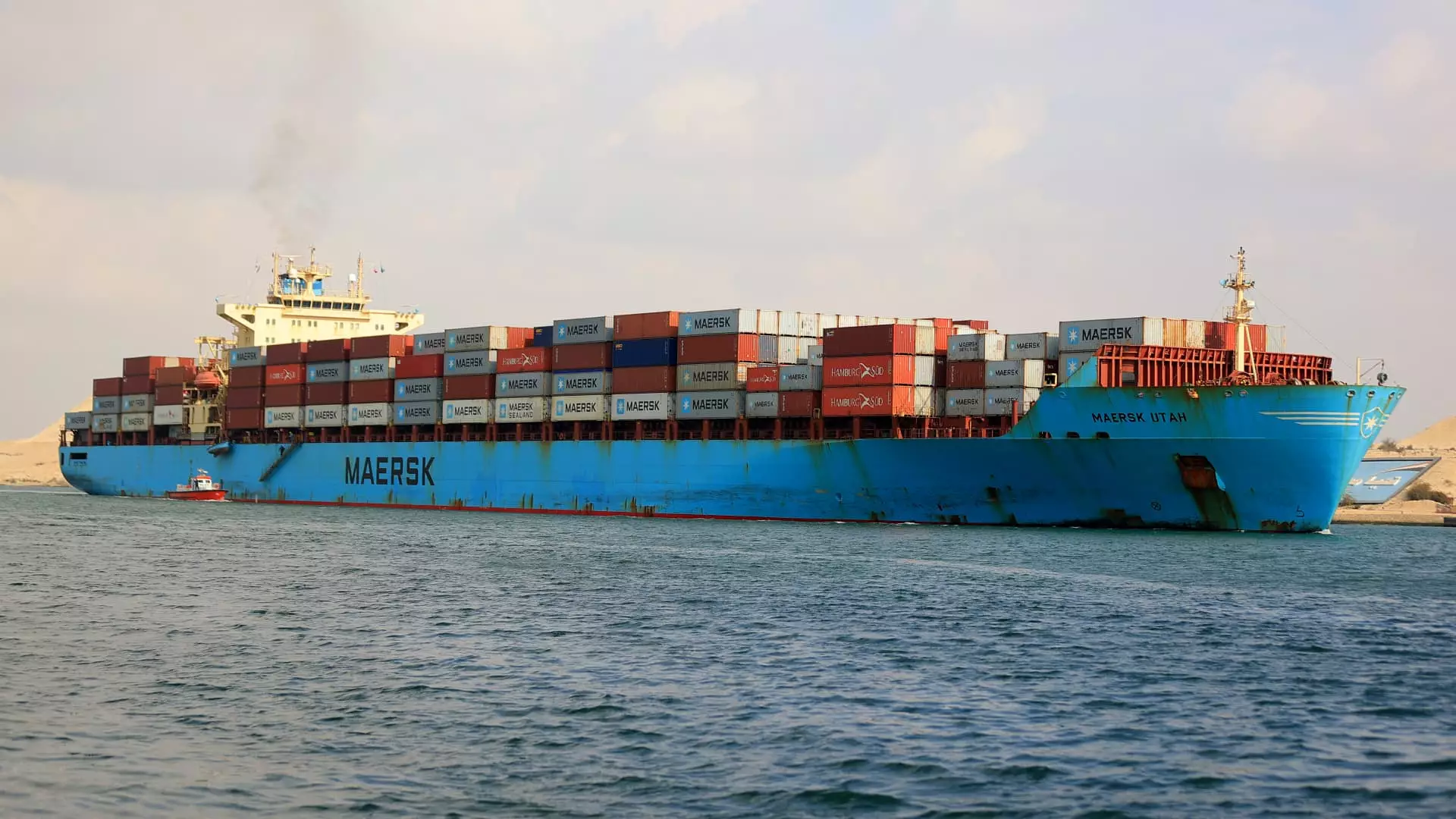The global trade industry is facing persistent challenges in the Red Sea region, particularly due to the activities of Iranian-backed Houthi militants based in Yemen. Despite efforts to protect commercial vessels from attacks, the threat remains high, as evidenced by the recent decision of Danish shipping giant Maersk to pause transits in the Red Sea and Gulf of Aden. Operation Prosperity Guardian, a U.S.-led initiative, is struggling to mitigate this threat effectively. The situation has led to significant changes in shipping routes, with more commercial ships opting to circumvent the Red Sea by taking the longer route around the Cape of Good Hope. This shift in shipping patterns has caused disruptions in global trade, impacting billions of dollars and numerous vessels.
The increased threat to commercial vessels in the Red Sea has resulted in a rise in container rates from Shanghai. Shipping analytics provider MarineTraffic revealed that the situation has already affected $225 billion in trade and impacted 330 vessels. The total capacity of these vessels is estimated at 4.5 million containers, causing significant economic implications. Moreover, global trade data provider Kpler observed a reduction in ship traffic through the Bab al-Mandeb Strait, connecting the Red Sea to the Gulf of Aden. Both northbound and southbound vessel crossings have witnessed a consistent downward trend, signifying the decline in trade activities in the region.
Operation Prosperity Guardian faces significant challenges in coordinating naval forces effectively to combat the Houthi threat. U.S. Navy Rear Admiral (Ret.) Mark Montgomery emphasizes the requirement for loose convoys, naval coordination, and the proactive use of helicopters to deter small Houthi vessels from approaching critical chokepoints. The cost associated with shooting down multiple Houthi missiles or drones adds to the complexity of the mission. The coalition aims to deter Houthi aggression through strategies such as “deterrence by denial” and “deterrence by punishment.” These approaches involve preventing attacks and responding forcefully when necessary. Failure to effectively deter the Houthi militants could lead to further escalation of hostilities.
The U.S.-led coalition has faced challenges in garnering international cooperation in protecting commercial vessels. Ami Daniel, CEO of data firm Windward, suggests that branding the coalition as U.S.-led has led countries like France to prioritize safeguarding their own companies. This has resulted in the French navy escorting French-flagged vessels, raising concerns about fragmented efforts and a lack of comprehensive understanding of global shipping and trade dynamics. However, Montgomery refutes this notion, highlighting that coalition branding has been a practice for three decades. Despite these tensions, global shipping operators have been making independent decisions on whether to transit through the Red Sea or opt for alternative routes, such as using Egypt’s Suez Canal or taking the longer route around the Cape of Good Hope.
The challenges in the Red Sea and the consequential shift in shipping routes have significant implications for the global shipping industry and supply chains. Goetz Alebrand, head of ocean freight at DHL Global Forwarding, acknowledges the current challenges in the Suez Canal, which is a crucial transit point for many carriers. To ensure the safety of crews and cargo, operators are increasingly choosing the longer route around the Cape of Good Hope. However, this alternative route results in longer transit times, potentially causing equipment imbalances and shortages in Asia. These disruptions in shipping and supply chain operations can have far-reaching consequences for businesses and consumers worldwide.
The ongoing threat to global trade in the Red Sea poses significant challenges for commercial vessels and the broader shipping industry. Efforts to protect vessels from Houthi attacks have not been entirely successful, leading to changes in shipping routes and disruptions in global trade. Effective naval coordination, international cooperation, and proactive deterrent measures are crucial in addressing this threat. Failure to effectively deter Houthi aggression could have dire consequences for global shipping and supply chains. It is essential for all stakeholders to work together to ensure the safe and uninterrupted flow of trade in this vital region.

Leave a Reply